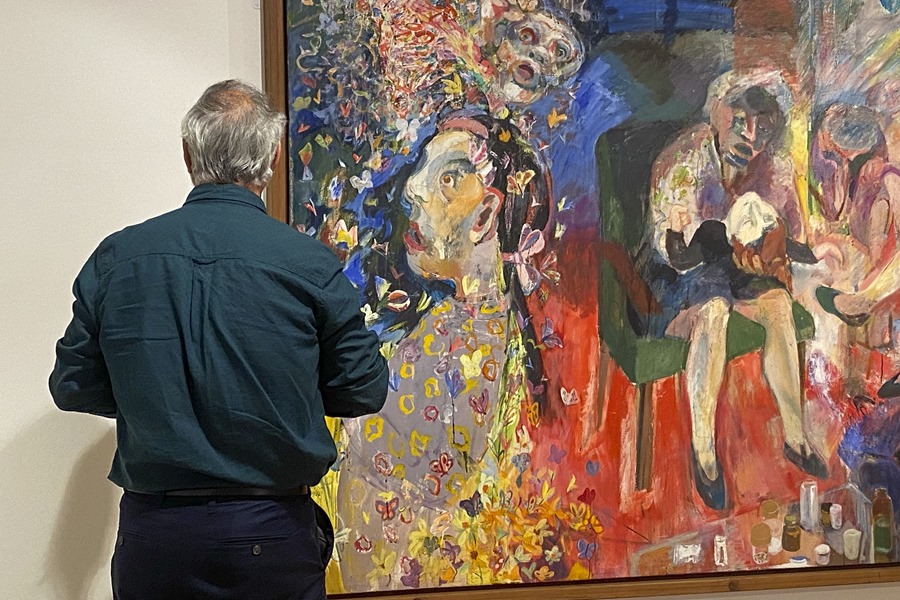Cristina Alonso Pascual |
London (EFE).- The Museum of the Mind, located in the heart of England’s first mental health hospital, exhibits patient and professional art as therapy, while reflecting the lights and shadows of the history of psychiatry and psychology.
An exhibition of the work, at the Royal Bethlem Hospital, south London, goes further than simply exploring the centre’s past, but also explores the various stages that mark psychiatric care, from admission to improvement.
For the director of the collection, Colin Gale, who believes that, despite progress, mental health is still stigmatized, the aim of the works on display is to contribute to increasing public awareness about this type of illness.
“We believe that all of these things can help improve mental health today and ask ourselves what future we want as a society providing mental health services,” he told EFE.
Past and present
Free access to the museum, which is located within a mental health complex part of the UK’s National Health Service, allows the public in attendance to get closer to a reality that was marred by prejudice, until recently.
In this way, as Gale explains, it is possible to destigmatize these kinds of centers, which are sometimes even treated as filming locations for horror films, leading to the creation of false ideas about such centers in the collective imagination.
Additionally, by exposing patients to their artwork, they gain the voice and visibility they need to express themselves and offer a new perspective to people who have not yet suffered from this type of disease.
However, the museum director stressed that mental health is not limited to those who suffer from it, but affects “society as a whole.”
At Bethlem, past and present professions are also harmonized. Founded in 1247 – although it has moved three times – the institution has survived all periods of its profession.
Therefore, in the museum you can see chains and other movement restriction elements related to the shadow trade, which coexist with displays of the evolution of technique and care.
Additionally, this visit also attracted public attention because it brought to light the moral conflicts that mental health professionals often face, such as deciding whether to allow someone suffering from severe depression to stay out of the hospital for the weekend.
‘Worlds apart’
In this way, the museum brings realities that are usually far from everyday life closer to the people and school groups who come to visit it.
That’s why the title of Charles Lutyens’ new temporary exhibition presented this week, ‘A World Apart’, will remain in one of the complex’s rooms until August 31.

“We realized that the vital environments Charles depicted were usually hidden, sometimes deliberately, but other times it was more as if people didn’t want to know anything,” said the museum director.
Human complexity and fragility are reflected in Lutyens’ paintings presented in this exhibition, where he also talks about himself and how he managed his life experiences, as told by his daughter Joanna Lutyens to EFE.
“I think he was trying to reinterpret and express other people’s emotions in his work, but obviously at the same time a lot of his emotions were reflected,” he said, of an exhibition he believes anyone can identify with.

“Internet trailblazer. Troublemaker. Passionate alcohol lover. Beer advocate. Zombie ninja.”







